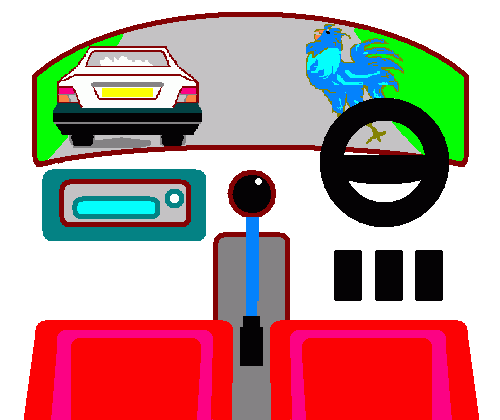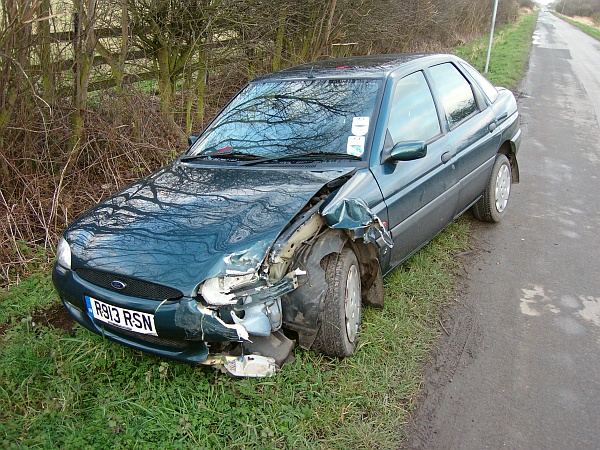
| It has been demonstrated that when an intense event happens to you over which you have little control, time actually slows down. This is what happened to me on Friday 17 March 2006. |
|
As I was approaching a parked car positioned well to its right, the cockerel of the house alongside emerged from a semi-ditch and started to cross the road. I remember the events well: my reaction when the cockerel led its hens across the road, moving to get in front of the cockerel, but then needing to get around the parked car, hitting the parked car to the left as my car seemingly did not respond enough to steering around it. |

| Michio Kaku (2006) shows that, in a situation like this, a person who cannot normally read the numbers produced by a fast random number generator - they appear blurred - can read them when they are put in an intense situation of danger (falling backwards). In other words, we do not just subjectively think time has slowed down, time does slow down. |
|
By the way, here was the result. |

| The opposite situation is the case in an exam. Here a person has intense activity which they put into an event. In an exam, or a timed piece of writing, the individual in full control writes rapidly and experiences the time go quickly. This is the opposite to a fearful uncontrolled event, and therefore time does go quickly. |

|
The importance of this is that the student writer must plan briefly the answer, and write short sentences and as efficiently as possible, wasting none of the speeded up time. Factual points and analytical/ evaluative points must be made without any waffle at all. |
|
Equally and opposite to that, an invigilator at the same time, who does comparatively very little, experiences time going very slowly. |
| Fortunately most invigilators are older than their students. Michio Kaku (2006) has also shown that older people experience time going more quickly. They can commonly estimate some 1 minute ten seconds or so to say that a minute has passed, which means that more time has actually passed within a perceived minute, and the day will feel shorter, whereas teenagers can generally estimate a minute at fifty five or so seconds, and so time stretches out. Nevertheless, when writing intensively, time speeds up and this is why exams must be approached very efficiently. |
|
Kaku, M (2006), Time, BBC Four, London: BBC, 26 February. BBC (2006), Documentaries BBC Four: Time, London: BBC, [Online], Available World Wide Web, URL: http://www.bbc.co.uk/bbcfour/documentaries/features/time.shtml. [Accessed March 27, 2006, 16:35]. |
Adrian Worsfold